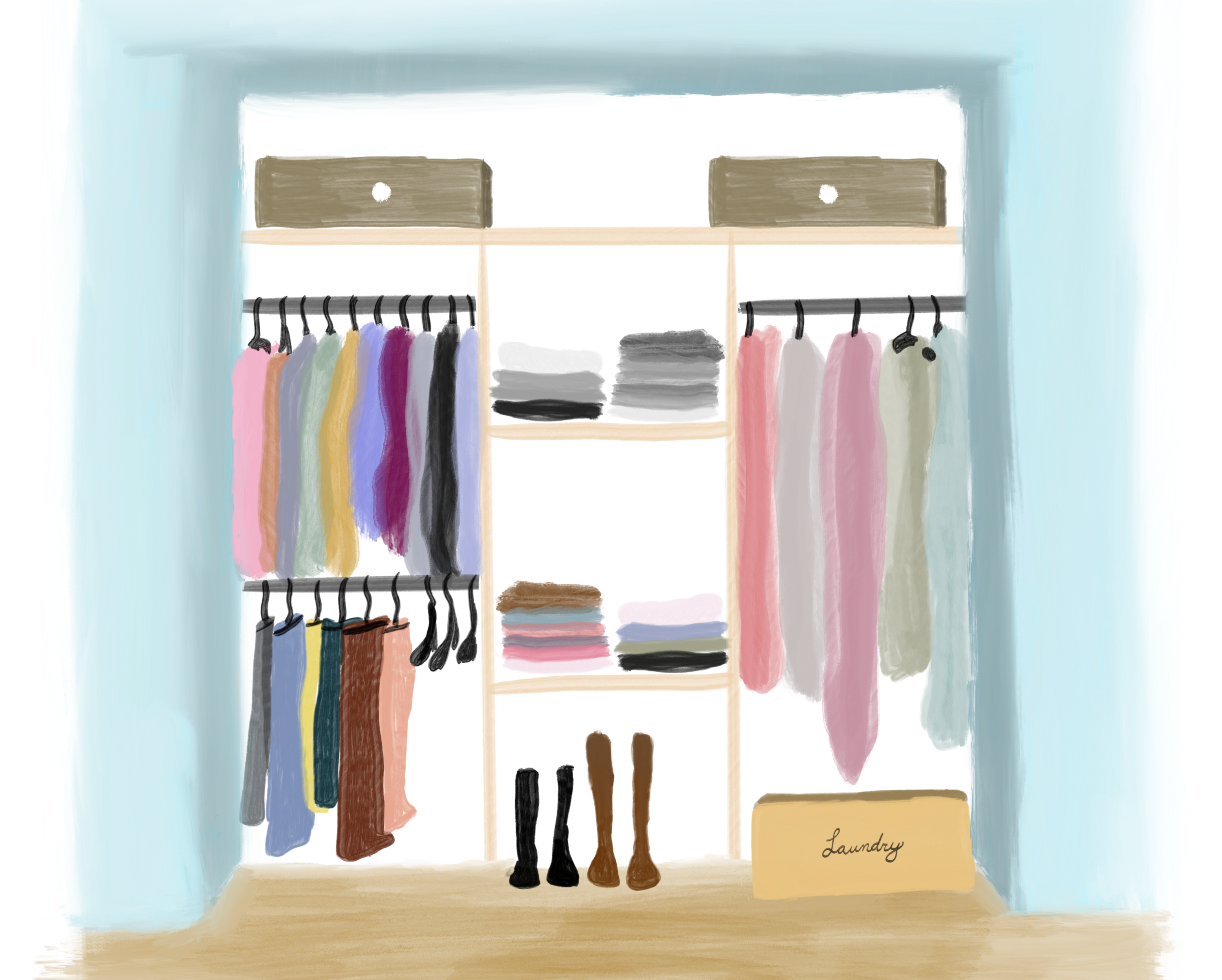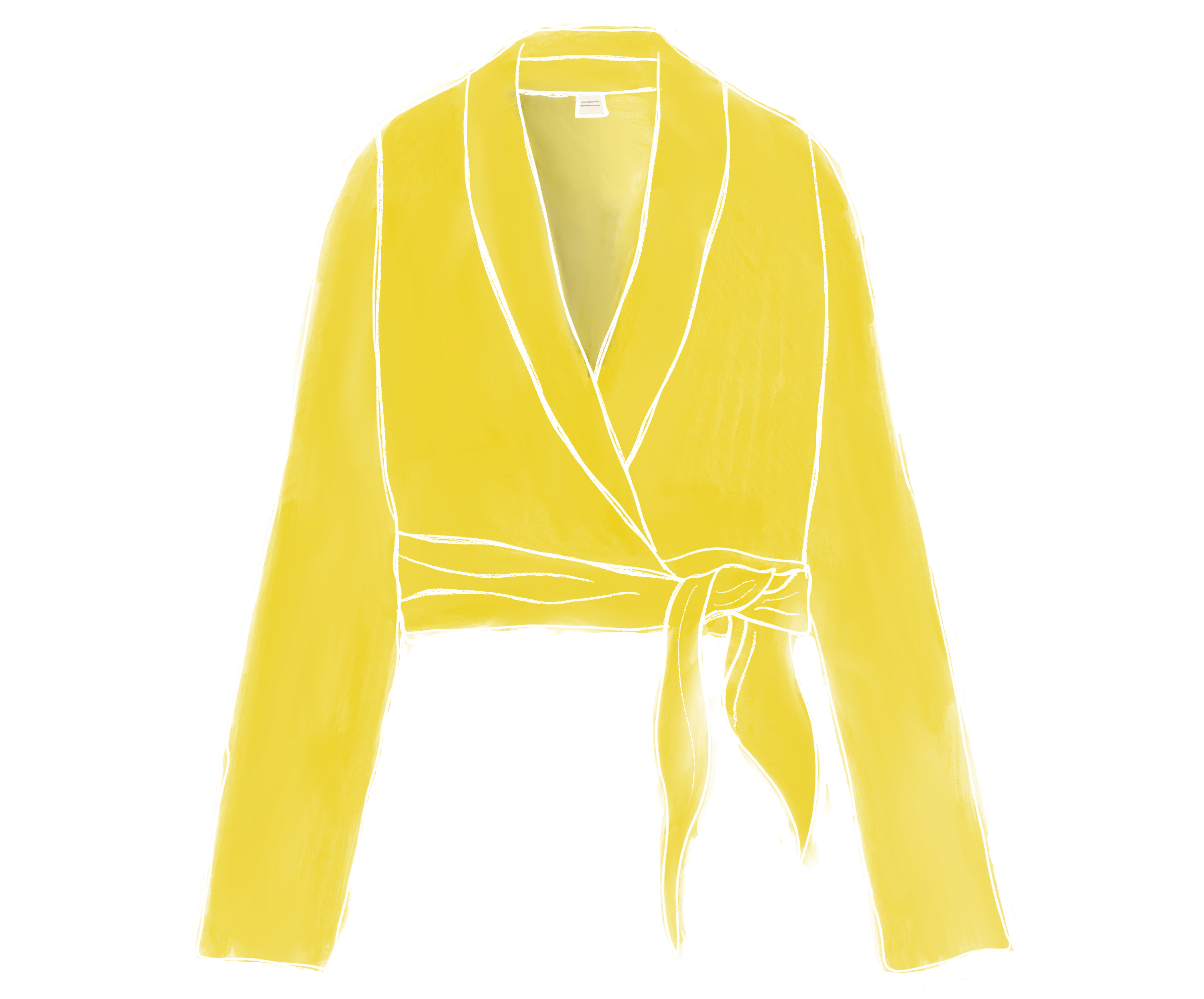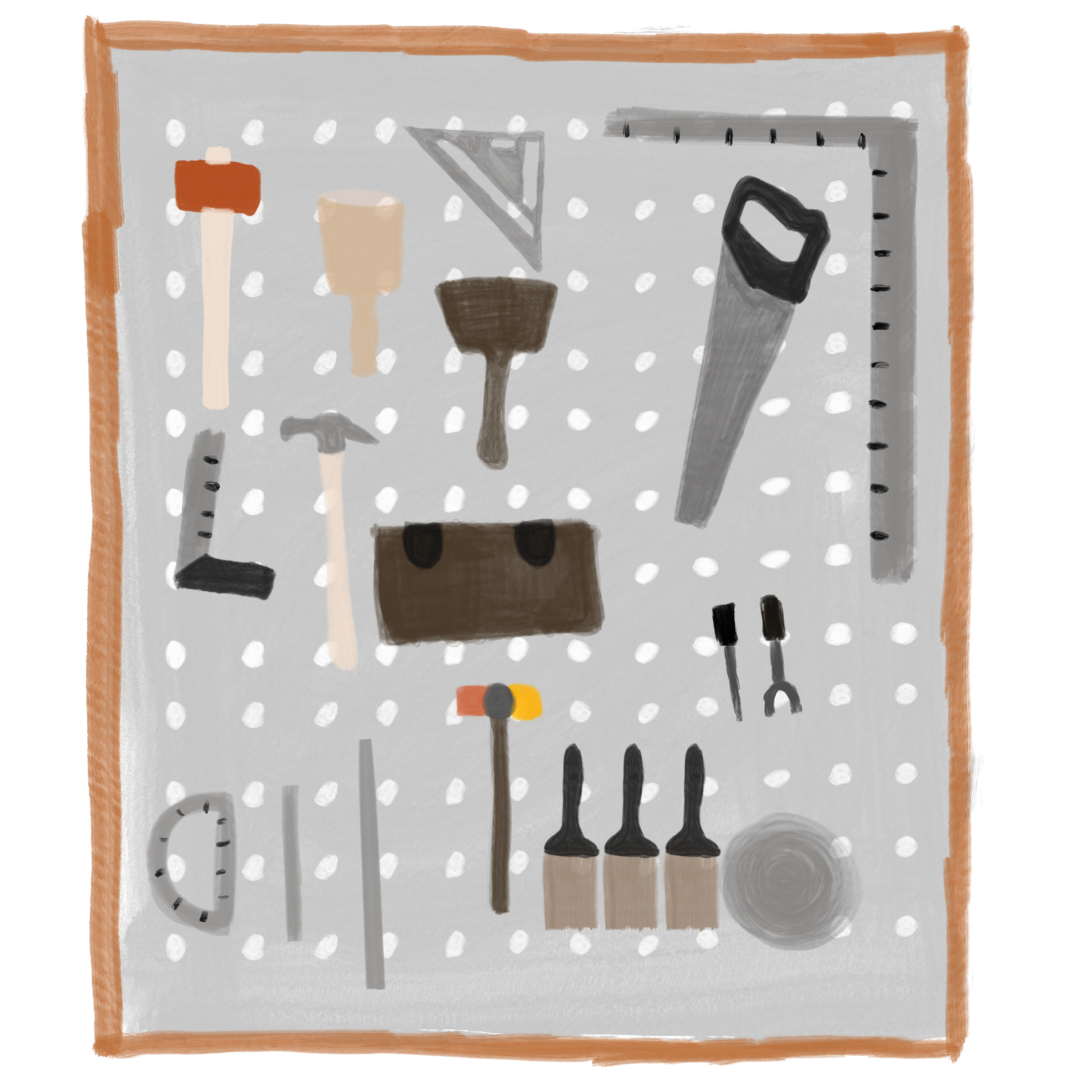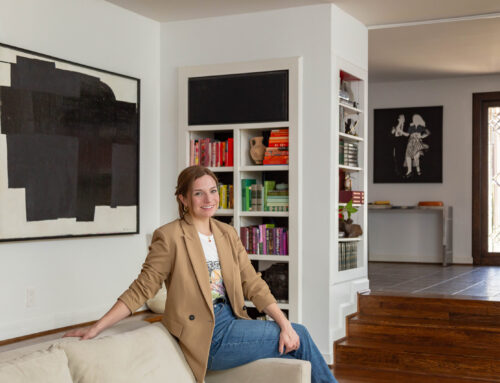
Illustrations by Jessica Turner
The pandemic forced Americans to take a good, hard look at their belongings. While some neighbors spent quarantine eliminating junk at a level not seen since the great Marie Kondo purge of 2019, others found themselves buried under more stuff from too much retail therapy and traumatic Costco runs for bulk items.
Home makeover shows like Netflix’s “Get Organized” featuring Nashville-based organizing company, The Home Edit, inspired us to turn our homes into Insta-worthy rainbow dreams. Words like “backstock” infiltrated our vocabulary alongside “unprecedented” and “pivot.” Although clients like Reese Witherspoon and Khloe Kardashian can afford The Home Edit’s $250-per-hour rate, let’s face it, most of us can’t.
The good news is that you don’t need a professional to structure your life, and if you do, there are much cheaper organizers in our neighborhood to help you get started. Debby Rogers started her home organizing business, Upcycle Organizing, about three years ago and is passionate about transforming problem areas into more functional spaces.

“I think people go wrong by generally just having too much stuff, and they’re demanding too much of their space,” she says. “I am not a miracle worker. It’s not like TV where [clients] leave and come back and their life is changed. They have to focus on what they really need, and we keep coming back to that during the process.”
If your hoarding tendencies have created an overwhelming clutter problem, the easiest place to start organizing is one corner in one room. Go through it piece by piece until you’re ready to move on to another corner, then another room. There’s no shame in keeping that useless cat painting that has sentimental value. And everyone is entitled to the sacred junk drawer for loose batteries, hair ties and stray toy pieces. But if you have 10 pairs of black pants, consider cutting that number in half to make room for the clothes you actually wear on a daily basis.
“Especially with COVID, people are seeing the clutter,” she says. “They didn’t live in it so much before. Everybody has different levels of what they consider clutter, and we all have different tolerances. It causes varying degrees of stress, anger and angst.”
Here are Rogers’ organizing tips to reduce stress and bring order to your chaos.
CLOSET
- If it’s stained, in disrepair or doesn’t fit, get it out of there.
- Use matching hangers.
BEDROOM
- Do you really need all those decorative pillows? “They usually get thrown on the floor and add to the piles of stuff,” she says.

PANTRY
- Donate any products you’re not using to a food bank, peace pantry or pop-up pantry in a neighbor’s front yard.
- Use labels to demarcate general areas for certain products like snacks, baking and cooking.
- Use bins if you can afford them. Most dollar stores have some cheap ones to get you started.
KITCHEN
- Small appliances can take up a lot of space. If you don’t use them, get rid of them.
- Get rid of duplicate utensils and pans. “People have so many spatulas,” Rogers says. “Think about cooking two meals. If you run the dishwasher every day, you don’t need eight spatulas. If you run it every other day, you might need two or three.”
- Be mindful of what’s in your fridge. “You shut the door and don’t see it, and that’s why it gets cluttered,” she says.
DINING ROOM
- Convert an old china cabinet into a game cabinet. “It’s a way to reuse a piece of furniture that is kind of obsolete now,” Rogers says.

OFFICE
- Reduce stacks of paper. Keep legal documents in a banker’s box, and store it in a closet. Digitize any other documents you want to keep. Shred the rest. “It’s very time consuming to go through every single piece, but it lightens the area and your mental headspace,” she says.
- Have a good office setup. “People say, ‘I don’t like being in here,’” Rogers says. “I’m telling you, it’s the chair. Buy a really awesome desk chair. The ergonomics of the space — the chair and monitor height — that goes with decluttering. It’s making the space functional for you.”
BATHROOM
- Keep extra bottles from club packs out of the bathroom. “That adds to the stress of the area,” she says.
- Throw away expired creams and medicine.
GARAGE
- Stay on top of the tiny piles. “The garage is where everything goes when it’s dead and never moves on to its burial,” Rogers says. “Piles are put on top of piles, and then it gets out of control. It happens so slowly that people don’t notice it. Then it takes a professional hauler.”
- Designate areas for bikes, sports equipment, Christmas decorations and other items.
- Use hanging systems like peg boards, shelves or cabinets to keep the space tidy.





